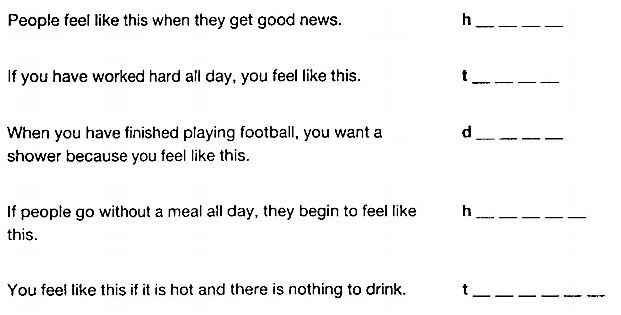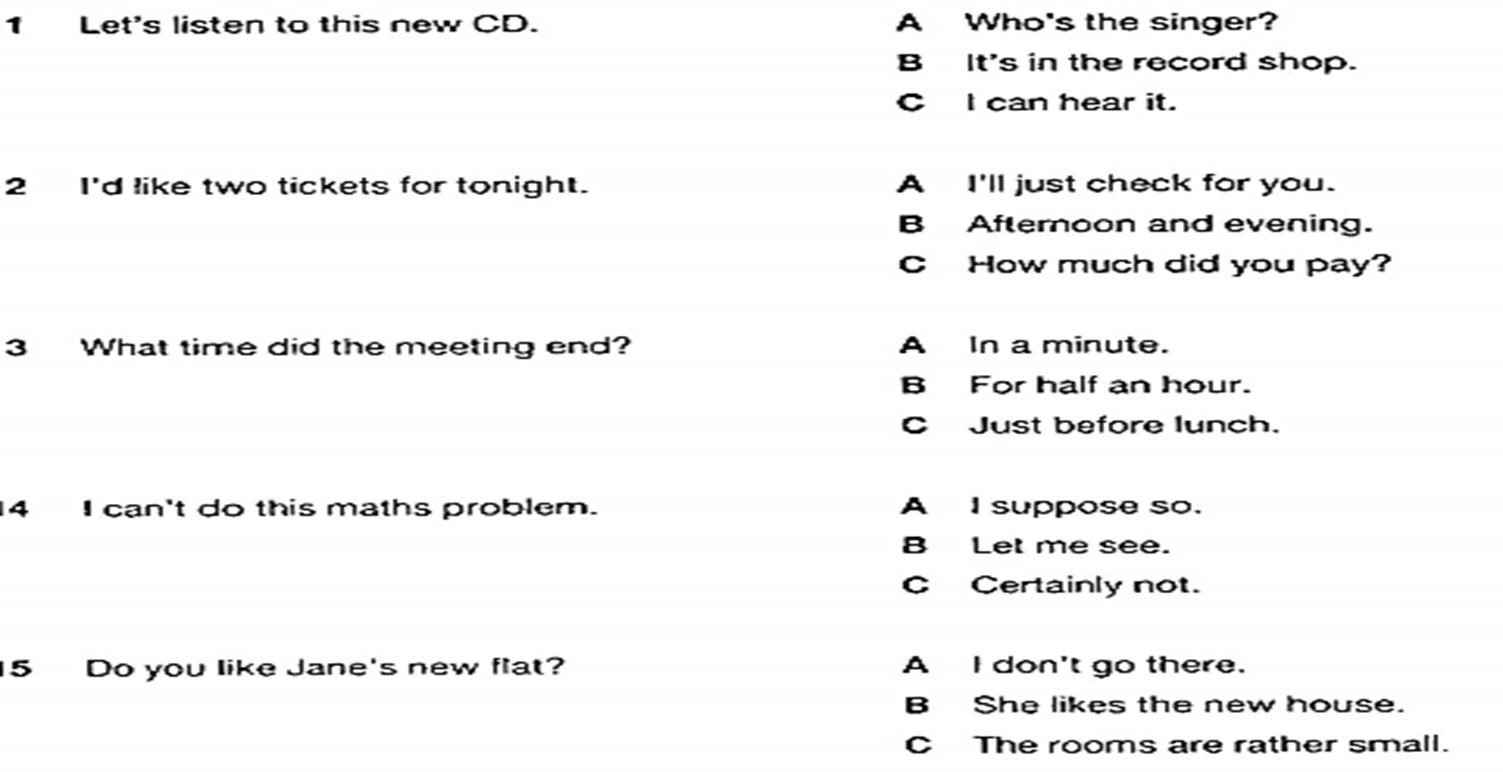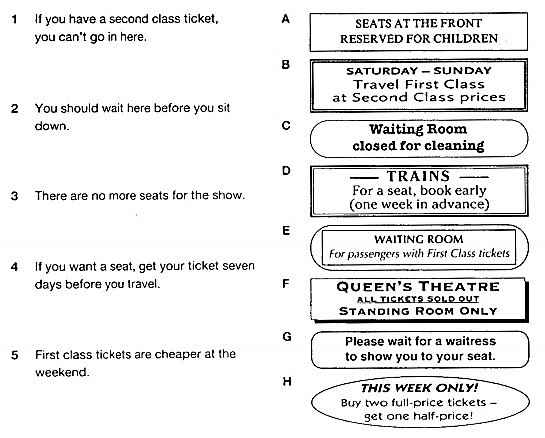Các câu hỏi tương tự
VI. Choose the correct answer A, B, c or D to fill each blank in the following text.My friends and I have written a (51) . We have decided to (52) it for our school. I have already built the set. Karen has just finished the (53) for us to wear. I haven’t learned the (54) yet, so I am a bit nervous, but I’m excited (55) . I haven’t been in a play before. I can’t wait!51. A. film B. song C. play D. club52. A. perform B. make C. take D. build53. A. stage B. actors C. play D. costumes54. A. script...
Đọc tiếp
VI. Choose the correct answer A, B, c or D to fill each blank in the following text.
My friends and I have written a (51) . We have decided to (52) it for our school. I have already built the set. Karen has just finished the (53) for us to wear. I haven’t learned the (54) yet, so I am a bit nervous, but I’m excited (55) . I haven’t been in a play before. I can’t wait!
51. A. film B. song C. play D. club
52. A. perform B. make C. take D. build
53. A. stage B. actors C. play D. costumes
54. A. script B. scripts C. play D. lessons
55. A. also B. then C. too D. eithe
IV. Choose the correct answer A, B, c or D to fill each blank in the following text.My friends and I have written a (26) . We have decided to (27) it for our school. I have already built the set. Karen has just finished the (28) for us to wear. I haven’t learned the (29) yet, so I am a bit nervous, but I’m excited (30) . I haven’t been in a play before. I can’t wait!30. A. film B. song C. play ...
Đọc tiếp
IV. Choose the correct answer A, B, c or D to fill each blank in the following text.
My friends and I have written a (26) . We have decided to (27) it for our school. I have already built the set. Karen has just finished the (28) for us to wear. I haven’t learned the (29) yet, so I am a bit nervous, but I’m excited (30) . I haven’t been in a play before. I can’t wait!
30. A. film B. song C. play D. club
31. A. perform B. make C. take D. build
32. A. stage B. actors C. play D. costumes
33. A. script B. scripts C. play D. lessons
34. A. also B. then C. too D. either
I. Choose the correct answer to complete each of the following sentences (4pts)1. They have decided to clean up the neighbourhood it is full of rubbish.A. so B. but C. although D. because2. We came to the remote village and meals for homeless children.A. cooked B. offered C. do D. made3. She blood twenty times so far.A. donates B. has don...
Đọc tiếp
I. Choose the correct answer to complete each of the following sentences (4pts)
1. They have decided to clean up the neighbourhood it is full of rubbish.
A. so B. but C. although D. because
2. We came to the remote village and meals for homeless children.
A. cooked B. offered C. do D. made
3. She blood twenty times so far.
A. donates B. has donated C. is donating D. to donate
4. They have decided to ride to work it is good for their health and the environment.
A. so B. but C. although D. because
5. We______to Ha Noi several times, but last summer we ___ there by train.
A. flew - went B. has flown - went C. have flown - have gone D. have flown – went
6. Volunteers can do general_________ such as clean-up projects or homerepair.
A. things B. labour C. jobs D. activities
7. Americans the tradition of volunteering and helping one another since the early days of the country.
A. have had B. has had C. had D. to have
8. Our school has a programme to children from poor families in Ho Chi Minh City.
A. ask B. offer C. tutor D. volunteer
9. Nowadays, a lot of ________ live in a nursing home.
A. homeless people B. elderly people C. street children D. disabled people.
10. There are a lot of ________ after the storm.
A. homeless people B. elderly people C. street children D. disabled people.
Read the descriptions of some feelings. Write the best answer. Choose the best answer for each question to complete the five conversationsRead the notice (A-H). Then write the correct answer.
Đọc tiếp
Read the descriptions of some feelings. Write the best answer.

Choose the best answer for each question to complete the five conversations

Read the notice (A-H). Then write the correct answer.

Read the following passage and choose A, B, C or D to indicate the correct answer to each of the questions.17. We didn’t (A) used to (B) have (C) a colorful TV, but we do (D) now.18. In spite of (A) being tiring (B), they wanted (C) to watch (D) the film. Read the following passage and choose A, B, C or D to indicate the correct answer to each of the questions.CARBON FOOTPRINTS19 a. Asb. Althoughc. Howeverd. Due to20. a. forb. toc. ond. in21. a. replaceb. reusec. increased. balance22. a. movingb...
Đọc tiếp
Read the following passage and choose A, B, C or D to indicate the correct answer to each of the questions.
17. We didn’t (A) used to (B) have (C) a colorful TV, but we do (D) now.
18. In spite of (A) being tiring (B), they wanted (C) to watch (D) the film.
Read the following passage and choose A, B, C or D to indicate the correct answer to each of the questions.
CARBON FOOTPRINTS
19 a. As | b. Although | c. However | d. Due to |
20. a. for | b. to | c. on | d. in |
21. a. replace | b. reuse | c. increase | d. balance |
22. a. moving | b. decreasing | c. rising | d. falling |
Everybody has a carbon footprint - it's the amount of carbon dioxide we produce with any action or activity. (19)__________________carbon dioxide contributes to 'greenhouse gases', our carbon footprints have a direct impact (20)________________the environment. You can estimate your carbon footprint on any number of popular websites: if it's small, then you're probably leading a relatively green lifestyle. But what happens if it's big?
Well, the answer is that you can (21) ______________it. This modern answer to the problem is for people to contribute to balancing the negative effects of their actions by using green fuels, recycling, reforestation and a number of other activities which are said to contribute to a lowering of (22)_________________carbon dioxide.
Choose A, B, C or D to indicate the underlined part that needs correction in each of the following questions.
Right now, a private company is developing something called ET3. ET3 stands for Evacuated Tube Transport Technology.
The ET3 system would reportedly be able to take passengers from New York to Beijing in just two hours. Here is how it works. A vacuum tube goes all the way from New York to Beijing. The tube is only a few meters wide. Capsules move through the tube. Six people can sit in one capsule. The capsules use electricity instead of gasoline. For international travel, the capsules can travel at about 6,500 kilometers per hour. That is much faster than an airplane!
So how can these capsules travel so fast? The answer is that there is no air inside the tube. When airplanes fly, they have to move through the air. The air resistance slows the airplanes down. Because there is no air in the ET3 tubes, the capsules are able to move at a very high speed. Besides, the capsules are quite light. They only weigh 183 kilograms.
Of course, ET3 doesn’t exist yet. Developers still have to solve a lot of problems. The biggest problem is that right now, ET3 would be far too expensive. In order to make ET3 cheaper, we will need much better technology. Maybe someday, you will be able to have lunch in New York and dinner in Beijing.
23. The word “works” in paragraph 2 is closest in meaning to ______.
a. travels b. operates c. earns money d. succeeds
24. According to the passage, which statement is NOT true.
a. Each ET3 capsule can carry up to six people.
b. We don’t know how to build its capsules
c. Speed in ET3 system is 6,500 km/h for international travel.
d. ET3 can travel a little faster than an airplane.
25. What can be inferred from the passage?
a. There is still a lot to do before putting ET3 into operation.
b. In the future, people will mainly use ET3 to travel abroad.
c. ET3 won’t be used domestically due to its high-cost
d. ET3 will soon be cheaper.
Choose the correct answer A, B, C, or D for each of the gaps to complete the following text.Television first came some sixty years ago in the 1950s. Nowadays, it is one of the most (1)…… sources of entertainment for both the old and the young. Television brings (2)…….. for children, world news, music and many other (3)………. If someone likes sports, he can just choose the right sports (4)………... It is not difficult for us to see why (5)………… is a TV set in almost every home today.Điền vào số 5 A....
Đọc tiếp
Choose the correct answer A, B, C, or D for each of the gaps to complete the following text.
Television first came some sixty years ago in the 1950s. Nowadays, it is one of the most (1)…… sources of entertainment for both the old and the young. Television brings (2)…….. for children, world news, music and many other (3)………. If someone likes sports, he can just choose the right sports (4)………... It is not difficult for us to see why (5)………… is a TV set in almost every home today.
Điền vào số 5
A. it
B. this
C. that
D. there
Give the correct form of the verbs in brackets.1. I’ve decided (stop)___________ smoking.2. How many times you (be)___________ to London this year?3. This house (build)___________ three years ago.4. We are tired of (work)___________ for low salary.5. This is the second time you (break)___________ a cup.6. I (not send)___________ the parcel until I hear from you.7. What (you/ do)___________ at this time yesterday?8. Would you mind (smoke)___________ here?9. Water (cover)___________ most of the Ea...
Đọc tiếp
Give the correct form of the verbs in brackets.
1. I’ve decided (stop)___________ smoking.
2. How many times you (be)___________ to London this year?
3. This house (build)___________ three years ago.
4. We are tired of (work)___________ for low salary.
5. This is the second time you (break)___________ a cup.
6. I (not send)___________ the parcel until I hear from you.
7. What (you/ do)___________ at this time yesterday?
8. Would you mind (smoke)___________ here?
9. Water (cover)___________ most of the Earth’s surface.
10. The gate (lock)___________ at 6:30 pm everyday
A. Choose the correct word A, B, or C for each of the gaps to complete the following text. Wickedly Wonderful is a small summer (1) ______ in the UK for children aged 6 to 13 years old. The children (2) ______ a week outdoors at the camp, making new friends and learning new activities while having a lot of fun. (3) ______ the summer camp, they sail, horse ride, kayak, enjoy games on the beach and the beach (4) ______, swim, surf, go crabbing and ride bikes. Children will enjoy holidays with Wick...
Đọc tiếp
A. Choose the correct word A, B, or C for each of the gaps to complete the following text.
Wickedly Wonderful is a small summer (1) ______ in the UK for children aged 6 to 13 years old. The children (2) ______ a week outdoors at the camp, making new friends and learning new activities while having a lot of fun. (3) ______ the summer camp, they sail, horse ride, kayak, enjoy games on the beach and the beach (4) ______, swim, surf, go crabbing and ride bikes. Children will enjoy holidays with Wickedly Wonderful, and (5) ______ are holidays that they will remember forever!
1. A. term B. course C. camp D. holiday
2. A. take B. spend C. use D. pass
3. A. At B. In C. On D. During
4. A. firing camp B. campfire C. fire camp D. firingcamp
5. A. this B. that C. these D. those
Read the following passage and write the letter A, B, C, or D on your answer sheet to indicate the correct answer to each of the questions. The festival of Diwali is one of the most important religious festivals in India. It lasts for five days around the end of October. It is the festival of Lakshimi, the Goddest who, in the Hindu religion, brings peace and properity.Preparations for the festival begin several weeks before the festival. People clean and decorate their homes, prepare special foo...
Đọc tiếp
Read the following passage and write the letter A, B, C, or D on your answer sheet to indicate the correct answer to each of the questions.
The festival of Diwali is one of the most important religious festivals in India. It lasts for five days around the end of October. It is the festival of Lakshimi, the Goddest who, in the Hindu religion, brings peace and properity.
Preparations for the festival begin several weeks before the festival. People clean and decorate their homes, prepare special food and buy new clothes and jewelry to welcome the Goddess in their homes. All over India, people light up their homes with oil lamps and colourful lights.
The celebrations take place on the darkest night of the lunar month, Amavasya. In the evening, fireworks fill the sky to make Diwali a true “Festival of Light
Question 29: Where is Diwali celebrated?
A. In the USA B. In Britain C. In India D. In Viet Nam
Question 30: When is the festival held?
A. In June B. In September C. In October D. In November
Question 31: What do people light up their homes in the festival?
A. with candles B. with colourful lights
C. with oil lamps D. B and C are correct
Question 32: What fill the sky to make Diwali a true “Festival of Light”?
A. fireworks B. lights C. candles D. matches











